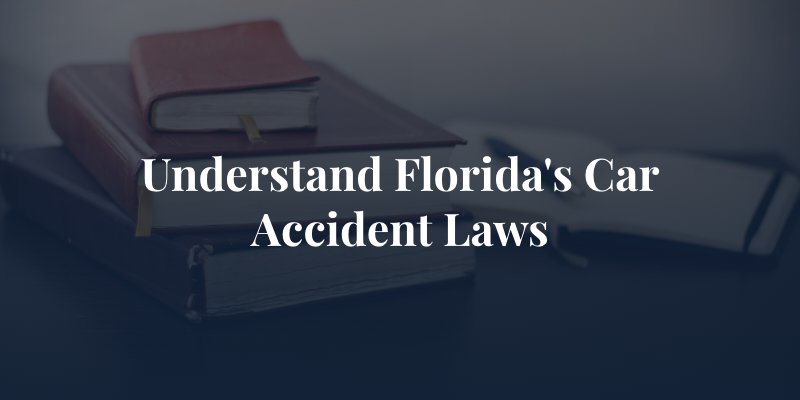
Car accidents can be overwhelming, but understanding the laws that govern them is essential for protecting your rights and ensuring a smooth resolution. If you’re a resident or visitor in Florida, it’s crucial to familiarize yourself with the car accident laws specific to the state. In this blog post, we’ll explore the key aspects of car accident laws in Florida, providing you with valuable insights and guidance.
Florida operates under a no-fault insurance system, which means that after a car accident, your insurance company is generally responsible for covering your medical expenses and related damages, regardless of who was at fault. Personal Injury Protection (PIP) insurance is mandatory in Florida, and it provides coverage for medical bills, lost wages, and certain other expenses. This system ensures that individuals involved in car accidents can quickly access medical care and support, helping them on their path to recovery.
After a car crash, a resident would need to seek medical attention within 14 days of the accident to establish the severity of the injuries. If a medical professional determined that the victim received a serious bodily injury during that evaluation, that person could bring a civil suit against the third party in a court of law. If a crash did not result in serious injury and was a result of negligence, the driver involved would be required to use their PIP policy instead of filing a case in Florida court.
Florida follows the legal principle of comparative fault, also known as comparative negligence. This means that if multiple parties are found to be at fault for an accident, each party’s degree of fault will be evaluated. The amount of compensation a person can receive may be reduced based on their percentage of fault. However, as long as you are less than 50% at fault, you can still pursue a claim for damages. It’s important to consult with an attorney who can navigate these complexities and advocate for your best interests.
It’s crucial to be aware of the statute of limitations for filing a car accident lawsuit in Florida. The statute of limitations sets the maximum amount of time within which legal action can be initiated after an accident. In March 2023, Florida passed a new law that changed the statute of limitations from four years to two years for general negligence claims, encompassing the vast majority of personal injury claims. Failing to initiate legal action within this timeframe may result in the loss of your right to seek compensation.
In Florida, it’s mandatory to report any car accident that results in injuries, fatalities, or property damage exceeding $500. Reporting the accident to the appropriate authorities is not only a legal obligation but also helps with documentation and investigation. Timely reporting ensures that insurance companies, law enforcement, and other relevant entities are aware of the accident and can initiate necessary procedures. By fulfilling this obligation, you fulfill your responsibilities and protect your rights in the aftermath of a car accident.
Safety is a top priority on Florida’s roads, and seat belt laws play a crucial role in ensuring the well-being of drivers and passengers. According to Florida law 316.614, all drivers, front-seat passengers, and passengers under the age of 18 are required to wear seat belts. This law also states, It is unlawful for any person 18 years of age or older to be a passenger in the front seat of a motor vehicle or an autocycle unless such person is restrained by a safety belt when the vehicle or autocycle is in motion.
These regulations are in place to protect everyone and minimize the risk of injuries in the event of an accident. Complying with these laws not only ensures your safety but also helps you avoid potential fines and penalties.
While auto insurance is required in Florida, not all drivers carry adequate coverage. Uninsured/underinsured motorist coverage is not mandatory but highly recommended. This coverage provides an additional layer of protection, safeguarding you in case you’re involved in an accident with a driver who lacks insurance or has insufficient coverage. Given the risks of encountering uninsured or underinsured drivers on the road, having this coverage offers peace of mind.
Seeking legal help after an accident is crucial for navigating the complexities of car accident laws in Florida. At Shapiro | Delgado, our dedicated team of attorneys is well-versed in Florida’s car accident laws and can provide expert guidance to help you pursue the compensation you deserve. Contact our car accident injury attorneys in Sarasota and Bradenton for compassionate and knowledgeable legal representation.
Notifications